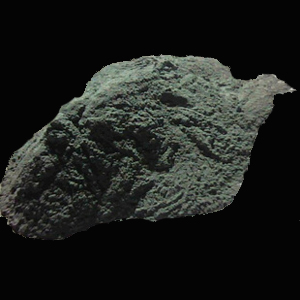Japan, home to some of the world's biggest stainless steel producers, will face higher costs and a scramble to find new nickel supply after Indonesia enforced an export ban on the raw material.
Global nickel prices and mining shares rallied a day after Indonesia banned unprocessed exports of nickel and bauxite, in a move aimed at getting higher returns for its resources by forcing companies to refine the minerals on Indonesian soil.
The law was first announced in 2009 but only a handful of firms made the downstream investments needed, betting on Indonesia backing down on the policy. Jakarta tweaked its rules on Saturday to allow copper, zinc, lead, manganese and iron ore concentrate shipments to continue.
Japan's biggest nickel smelter, Sumitomo Metal Mining Co Ltd (SCM), said it had enough nickel ore to maintain its current production level of ferro-nickel only till May.
"We have enough inventories till early May. We may need to cut output afterwards if Indonesia's export ban continues," a spokesman said, speaking before the ban was enacted on Jan. 12.
Sumitomo's Hyuga Smelting in Kyushu, southwestern Japan, produces about 21,000-22,000 tonnes of ferro-nickel per year, and about 40 percent of its raw material comes from Indonesia.
Ferro-nickel is an alloy made from iron andnickel and is used as a raw material in stainless steel.
Japan imported 44 percent of its nickel ore from Indonesia in 2012, down from about 60 percent in 2009 when the Southeast Asian state announced plans for the ban on mineral ore exports.
Last year, Japanese nickel ore imports from Indonesia rose 9 percent between January to November over the year before, as users stepped up buying ahead of the Indonesia ban.
In contrast, Chinese nickel pig iron producers have already boosted their stockpile to eight months or more, while aluminium producers have stocks for more than a year of production.
China imported 64.8 million tonnes of nickel ores and concentrates from January to November, up 18 percent on the year. Imports from Indonesia at 36.1 million tonnes have jumped 27 percent over the period.
"Chinese nickel pig iron producers have around eight months of stockpiles, so these producers would not be affected in the short term," said Citi commodities strategist Ivan Szpakowski.
In the long term, however, the ban could curb growth in China's nickel pig iron industry which is blamed for the prolonged downturn in nickel prices. China is the top importer of Indonesian ores, which are fed into furnaces to produce nickel pig iron, a lower-cost alternative to higher-quality nickel ores from Australia and elsewhere for makers of stainless steel.
Japan's Pacific Metals Co Ltd, the world's third biggest ferro-nickel producer, said it would boost imports from the Philippines and New Caledonia to replace Indonesian ore.
"We expect the change will slightly push our production cost as Indonesian ore is higher quality than others," a company spokesman said. He declined to say how much cost will be added.
Indonesia exported $2.1 billion worth of nickel ore and bauxite in 2012, according to the central bank.
Copyright © 2013 Ferro-Alloys.Com. All Rights Reserved. Without permission, any unit and individual shall not copy or reprint!
- [Editor:editor]



 Save
Save Print
Print Daily News
Daily News Research
Research Magazine
Magazine Company Database
Company Database Customized Database
Customized Database Conferences
Conferences Advertisement
Advertisement Trade
Trade













Tell Us What You Think